











Read More
BCA with IBM is meticulously designed, offering students a comprehensive understanding of computer applications and business processes. Specialized training in IBM technologies, particularly in AI, machine learning, and deep learning, is integrated into the curriculum. The program balances theoretical knowledge with practical skills, preparing students for successful careers in the dynamic IT industry. Subjects include software development, database management, system analysis, and the seamless integration of cutting-edge IBM technologies, including AI and deep learning. Practical exposure to IBM tools ensures students are well-equipped for evolving IT demands.
Year wise Course Details
Courses for this semester
This course is designed to impart knowledge on the concepts of fundamental properties of probability and Statistics, distributions, testing of hypothesis for small and large samples in engineering applications.
This course is an introduction to Digital Electronics, with topics ranging from basic number system, logical gates, truth table, K-maps, encoder, decoder, counter etc.
Software Foundation with C++ is a comprehensive course designed to equip learners with a strong understanding of programming fundamentals using C++. It covers core concepts like variables, data types, control flow, functions, and object-oriented programming principles.
Fundamental of computer application course includes fundamental of computer components, block diagram, software and hardware. Basic computer networks and some application S/W.
This course is about the basic mathematics that is fundamental and essential component.
This course introduces fundamental algorithms and problem-solving techniques essential for developing efficient and effective computational solutions. It focuses on understanding algorithmic principles and applying them to real-world problems.
This course introduces the principles of statics, a branch of mechanics dealing with forces and their effects on stationary objects. It aims to provide a solid foundation in understanding how forces interact and how they can be analyzed to ensure stability and equilibrium in structures and systems.
Co-curricular activities are complementary to the academic curriculum, offering students opportunities for holistic development. These experiences extend beyond the classroom, encompassing a wide range of pursuits like sports, arts, clubs, and community service. By participating in these activities, students cultivate essential life skills, including teamwork, leadership, creativity, and communication. Co-curricular involvement enhances personal growth, fosters a sense of belonging, and prepares students to become well-rounded individuals equipped for success in higher education and beyond.
This course provides a foundational understanding of version control using Git and collaborative development using GitHub. It is designed for beginners to learn how to manage code changes, collaborate with others, and streamline their development workflow.
Courses for this semester
Data structures in C are a way of storing and organizing data in the computer memory so that it can be processed efficiently. Data structures can be broadly classified into two categories – Primtive and Non-Primitive. Non-primitive data structures can be further classified into two categories – Linear and Non-linear. Linear data structures include arrays, stacks, queues, linked list and Non-linear data structures include trees and graphs.
Computer architecture is a blueprint for the design of a computer system and describes the system in an abstract manner. It describes how the computer system is designed. On the other hand, computer organization is how operational parts of a computer system are linked together.
Web technology refers to the tools, programming languages, and protocols used to develop and manage websites and web applications. It enables communication and interaction between users and servers over the internet.
Cloud Fundamentals provides an introduction to cloud computing concepts, services, and architectures. The course covers key cloud models, deployment types, security considerations, and hands-on experience with major cloud service providers. Students will gain an understanding of how cloud technology enables scalable, cost-effective, and flexible IT solutions.
Extra-curricular activities aim to help students explore their interests, develop technical and non-technical skills, and foster interpersonal growth early in their academic journey. These activities often align with the foundational stage of their computer science education, focusing on creativity, collaboration, and self-expression.
The Fundamentals of Management course introduces students to the core principles, concepts, and functions of management. It covers planning, organizing, leading, and controlling within an organization, helping students develop essential managerial skills for various business environments.
It is to develop the social and soft skills and to promote a holistic development of the learners
This course provides an introduction to the fundamental concepts and techniques of graph theory, a key area in discrete mathematics. It explores the structure and properties of graphs and their applications in various fields, including computer science, operations research, network analysis, and social sciences. Topics include basic definitions (vertices, edges, degree, paths, cycles), types of graphs (directed, undirected, weighted, bipartite, trees).
This course explores the fundamental mathematical concepts required for programming and their application. It covers arithmetic operations, logical and Boolean expressions, control flow, number systems, bitwise manipulation, and data representation through arrays and matrices. Students will gain hands-on experience in designing and implementing mathematical solutions for real-world computational problems, preparing them to write efficient and optimized.
Data Structures are the main part of many computer science algorithms as they enable the programmers to handle the data in an efficient way. It plays a vital role in enhancing the performance of a software or a program as the main function of the software is to store and retrieve the user's data as fast as possible.
This course introduces the principles of basic computer organization, CPU organization, and the basic architecture concepts. The course emphasizes performance and cost analysis, instruction set design, register transfer languages, arithmetic, logic and shift micro-operations, pipelining, memory technology, memory hierarchy, virtual memory management, and I/O organization of computer, parallel processing and inter process communication and synchronization.
From the web technology course students will learn to create more dynamic and interactive websites using JavaScript. Advanced HTML, CSS, and basic JavaScript enhance the client-side web pages and students will learn to use these technologies for their specific purposes. This will allow students to create websites that store, access, and use data stored in the database tables.
This course offers a comprehensive introduction to Cloud Computing, focusing on both theoretical concepts and practical applications. Students will learn about cloud models, services, and deployment models, with a specific focus on IBM Cloud resources. Topics covered include DevOps practices, RESTful APIs, containerization, and cloud-native development with Node.js. Through lectures, hands-on labs, and projects, students will gain practical experience in developing and deploying cloud applications.
Courses for this semester
A database management system (DBMS) course provides foundational knowledge and practical skills in designing, creating, and managing databases, covering theoretical concepts like data modeling and normalization, and practical skills such as SQL querying, transaction management, and security.
The purpose of this course is to provide a clear understanding of fundamentals with emphasis on their applications to create and manage large data sets. It highlights on technical overview of database software to retrieve data from a database. The course includes database design principles, normalization, concurrent transaction processing, security, recovery and file organization techniques.
This course examines the important problems in operating system design and implementation. The operating system provides an established, convenient, and efficient interface between user programs and the bare hardware of the computer on which they run.
This course will introduce you to some of the most powerful programming concepts in Java, including: objects, inheritance and collections.
This course aims to introduce students to the fundamentals of data visualization and analysis using Python. Through a comprehensive curriculum, students will gain proficiency in Python programming, understand the mathematical foundations of data science, explore data visualization techniques, and learn to analyze and interpret data effectively.
Courses for this semester
An algorithm is a sequence of steps to solve a problem. Design and Analysis of Algorithm is very important for designing algorithm to solve different types of problems in the branch of computer science and information technology."
"Python is a high-level, interpreted, interactive and object-oriented scripting language. Its high-level built in data structures, combined with dynamic typing and dynamic binding, make it very attractive for Rapid Application Development, as well as for use as a scripting or glue language to connect existing components together. Python's simple, easy to learn syntax emphasizes readability and therefore reduces the cost of program maintenance. "
This course deals with introductory concepts of computer networks and the Internet. It is the study of how computers can be linked to share data and information.
"This course focuses on the basics of using a computer. This course has been designed for students with little to no knowledge of and experience on computers and the Internet. Through this Course, we introduce the fundamentals of computing devices and reinforce computer vocabulary, particularly with respect to personal use of computer hardware and software, and the Internet. The course focuses on computer literacy that prepares students for lifelong learning and use of computer concepts and skills"
Courses for this semester
With the help of the Advanced Application Development course, students will be able to go beyond the basics of software development and get fully immersed in the details of contemporary application design and implementation. This advanced-level course builds on the fundamental knowledge learned in introductory programming language to give students the skills, methods, and best practices needed to create software that is suitable for corporate use.
This course gives detail about Cloud Computing and implement its various services. Student will get an in- depth understanding of cloud hosting service providers and their architecture, deployment, services, and many more to solve any business infrastructure problems.
This course provides an introduction to the principles and practices of User Interface (UI) and User Experience (UX) design. Students will learn the fundamentals of designing digital products that are intuitive, user-friendly, and aesthetically appealing.
"This course provides a comprehensive AI for students with a foundational understanding of key concepts such as machine learning and deep learning, complemented by practical applications using IBM Watson services and IBM Natural Language Processing (NLP) tools. Through hands-on experience with these industry-leading technologies, learners develop proficiency in leveraging AI techniques to solve real-world problems effectively. Additionally, the course emphasizes critical thinking skills necessary to navigate the ethical considerations inherent in AI technology, ensuring responsible innovation and preparing students for success in today's rapidly evolving AI landscape. "
Courses for this semester
This course provides a foundational understanding of cyber security, focusing on the principles, threats, vulnerabilities, and defense mechanisms used to secure digital systems. Students will explore key concepts such as cryptography, network security, ethical hacking, malware analysis, and risk management. The course also covers real-world cyber security challenges and best practices to safeguard information systems.
The course “Computer vision” will likely cover topics such as image representation, feature extraction, and image enhancement methods. Students will learn about various image processing algorithms and how to apply them to solve real-world problems.

CST- Common scholarship test is a national and international level online MCQ based examination funded for intellectual empowerment by Assam down town University.
CST- Maximum enrolment each year is 269 seats and any 10+2 students can apply. Adtu is northeast India’s first placement driven university to provide 100% scholarship benefits worth 30 cr.
CST aims to inspire brilliant and competent students to pursue further education. Accredited with a prestigious grade by NAAC, UGC and AICTE.
Explore more scholarships that can help you reach out your goal with financial aid.
This scholarship is valid on the basis of the board/university examination
| 95% & above | 100% Scholarship on all semester |
| 90%-94.9% | 50% Scholarship on all semester |
| 80%-89.9% | 25% Scholarship on all semester |
This scholarship is valid on the basis of the board/university exam
| National & International Level | 100% Scholarship on all semester |
| State Level | 50% Scholarship on all semester |
| District Level | 25% Scholarship on all semester |
This scholarship is valid on the basis of the board/university exam
| National & International Level | 100% Scholarship on all semester |
| State Level | 50% Scholarship on all semester |
| District Level & NCC Certificate Holder | 25% Scholarship on all semester |
Discover a multitude of world-class amenities and cutting-edge resources at Assam down town University, enhancing your academic journey to new heights.
The Start-Up & Incubation Centre at Assam down town University provides a supportive environment for young entrepreneurs to develop and grow their business ideas. The center provides mentorship, funding, and networking opportunities to help innovative ideas become successful businesses.
SFURTI scheme to support rural entrepreneurs and innovators, an initiative by the Ministry of MSME
TIDE 2.0 scheme for ICT-based startups which provides a grant of Rs. 4L and Rs. 7L under EiR and Grant categories respectively, an initiative by the Ministry of MeitY.
dtVL Ideation, an incubation program for early-stage entrepreneurs with a market-ready solution/product, offering interest-free loans up to Rs. 2 lakhs.
Sprout UP, an incubation program for students, faculties, and researchers with innovative business ideas, prototypes, or technology solutions.

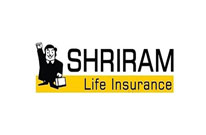

.png)



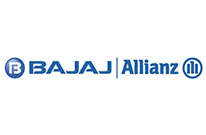

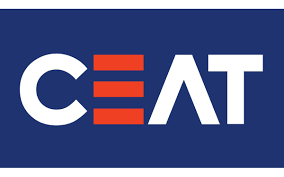




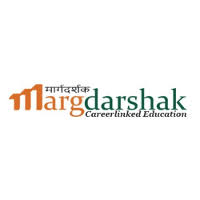

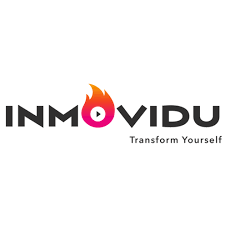

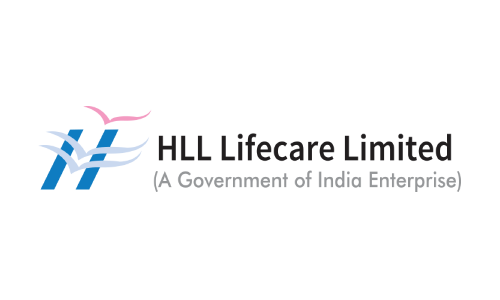







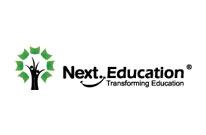



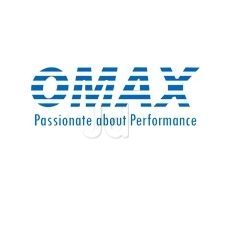



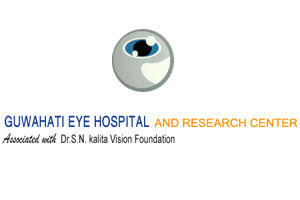








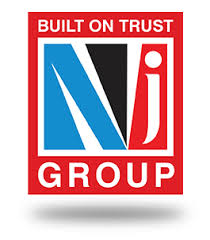






"I am a BBA student of 3rd semester. I hail from Bhutan. I vow that I am having a great experience i...
"AdtU is amazing. I am a BBA student of 2019-22 batch and I am just grateful for the amount of oppor...
Let us be grateful to the people and place who makes us happy. They are the charming gardeners whom ...
Currently I am pursuing MBA in Assam Down Town University. MBA is the professional course through wh...
AdtU is a university that focuses on giving knowledge, education and simultaneously making the stude...
The Assam downtown University has been a great learning experience. The university has provided me w...
My experience with AdtU has been splendid one indeed. Little needs to said about its scenic infrastr...
As a student I am very glad that I have got an opportunity to study here in Assam downtown universi...
My name is Sakhyajit Roy. I?m from Tripura. I joined the university on Auguest, 2017 as a student of...
I share immense pleasure to share my post graduate program experience in Assam down town University....
AdtU is a platform where I got golden opportunities to feed my zeal for knowledge through the dynami...
I am fortunate to get an opportunity to study here in Assam Downtown University. The best thing abou...
Our university is one of the best place for developing ourselves in the field of research and acedem...
ADTU is a university that is very good interms of infrastructure, academics and placements. Our tea...
It is one of best private colleges in North East India, it also provides a good environment for ed...
ADTU is a good University which provides the students with best quality lectures and ensures comfort...
The environment of Assam downtown university is very pleasant.The department of BMLT is very good a...
The university has all the necessary facilities and amenities for students . The classrooms and the ...
Assam downtown University is well recognised all over india. In the ongoing pandemic situation it ha...








